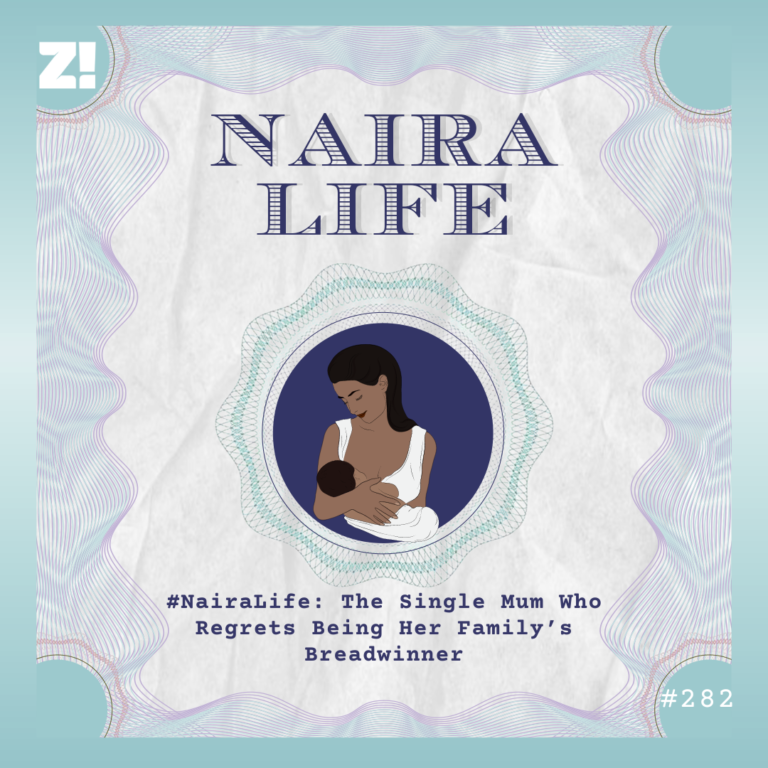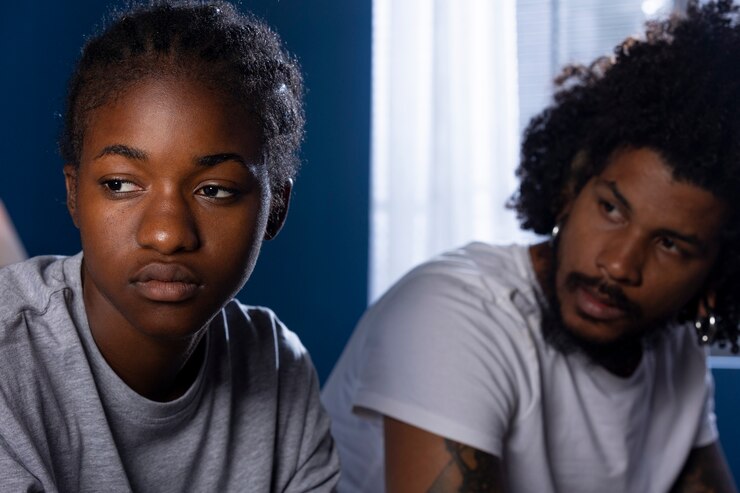What’s it like to grow up with deeply religious parents who believe the world’s most celebrated holiday is a “pagan ritual”? Sophia* shares why she still feels guilty about Christmas, as a 25-year-old adult who no longer attends her parents’ church, but still lives with them.

As told to Boluwatife
The first time I remember hearing the word “Christmas” was in December 2006. I was nine years old, and my new primary school was organising a Christmas party. I’d just transferred to the school some months before when my military dad was posted to the state. My teacher had mentioned the party in class as she handed us letters to give our parents.
She talked about picking pupils to star in a Christmas play during the party, and I remember my best friend, Chidera, being all excited about it. Even at nine, I knew Chidera was dramatic, so it only made sense she’d want to act in the play. I had no interest in acting, but seeing her excitement made me look forward to attending the Christmas party. I never did.
I took the letter home and handed it to my mum — it was an invitation to the party, including details of how much each pupil was to pay. My mum went berserk, and the next day, she was at my school shouting at my teacher and headmistress. I didn’t really understand the problem at the time, but now, I know too well.
You see, my parents are staunch members of a conservative church whose doctrines deeply frown against things like make-up, female trousers, drumming in church, hair extensions, and most importantly, celebrating Christmas. They believe the Bible never mentions celebrating the birth of Christ or even the date he was born. According to them, the star that led the wise men to Christ could’ve been engineered by the devil to help King Herod find and kill the baby.
In conclusion, Christmas was a no-no in our house, and it became even more apparent after this Christmas party incident. I’m an only child, and since my dad is the stereotypical hardly-around, leaves-child-training-to-the-mother kinda father, my mum made it her duty to drill into my head the dangers of taking part in a “pagan ritual” and going against the will of God. It didn’t help that I suddenly became aware of all the lovely things other children in the barracks enjoyed during the festive season.
On Christmas day, you’d see them match around the barracks in new clothes, with money in their hands to buy sweets and biscuits. The stubborn ones would even buy banga when it was considered contraband in the barracks.
I desperately wanted to wear nice clothes and buy sweets too. But on Christmas Day 2008, I made the mistake of suggesting it to my mother. She beat me so much I still have a scar on my right elbow to remind me of my foolishness.
I never mentioned Christmas at home again. I moved out in 2014, when I got admission to the university, and stayed on campus throughout my five-year degree period, only visiting home during the holidays. My school was in a different state, and it was expensive to travel, so it only made sense to limit my visits.
Living away from home, especially when you have strict parents, opens you to a level of freedom you never had before. It was in school I started using makeup and wearing trousers. I also experimented with relaxers and hair extensions before I decided I hated it and went fully natural in my final year. I had freedom, but I was still religious. I don’t think it’s possible to just throw away everything you’ve known all your life.
I still regularly attended church, but not my parents’ church. I attended the campus branch of their church once, then my roommates invited me to their church. I went with them one Sunday and never looked back.
It was one of these new-generation churches I’m sure my parents would rather die than attend, but fellowshipping with young believers helped me experience religion in a different light. I learnt that God isn’t just the “all-consuming lion” my parents project him as, but he’s also a loving father. I loved that church, but never got used to the ladies praying with uncovered hair. What’s that they say about leopards never changing their spots?
Maybe it’s the reason why I never got comfortable during December activities at the church. They didn’t share my home church’s Christmas-is-a-sin beliefs, and from the very first day of December, you could tell Christmas was in the air. They’d decorate the church hall and stuff every service with Christmas messages and carols. We even did secret Santa and exchanged gifts during the Christmas Day service. I loved it, but I never got rid of my mum’s voice in my head, shouting, “Don’t participate in pagan rituals!”
For the December holidays I spent at home, it was just easier to follow the status quo and attend my parents’ church. They didn’t do any special December activities, of course, so it was just like old times. My mother did notice my relaxed hair once — I never wore makeup or trousers at home — and might have killed me if our neighbours didn’t interfere. She didn’t talk about it again, which is surprising, but I think she feared I might do worse in school.
After finishing university around 2020, I returned home for what was supposed to be a brief stay before National Youth Service Corps (NYSC) posting, but COVID happened, so I basically served from home, and I’ve been here ever since. I got a job close to home in 2021.
Even though I no longer attend my parents’ church since I started working in 2021 — I refused to give in to their demands to go with them — I still have to respect them by toning down my fashion, and of course, never mentioning Christmas. It doesn’t mean I don’t miss the carols, decorations and gifts, but to be honest, I’m not entirely sure my current anti-Christmas stance is out of respect for my parents or a nagging feeling that I’m sinning against God.
Maybe I’ll grow out of it one day, but I don’t see it happening while I still live under my parents’ roof.
*Subject’s name has been changed to protect her identity.
ALSO READ: This Is for Everyone Who Can’t Wait for Christmas




